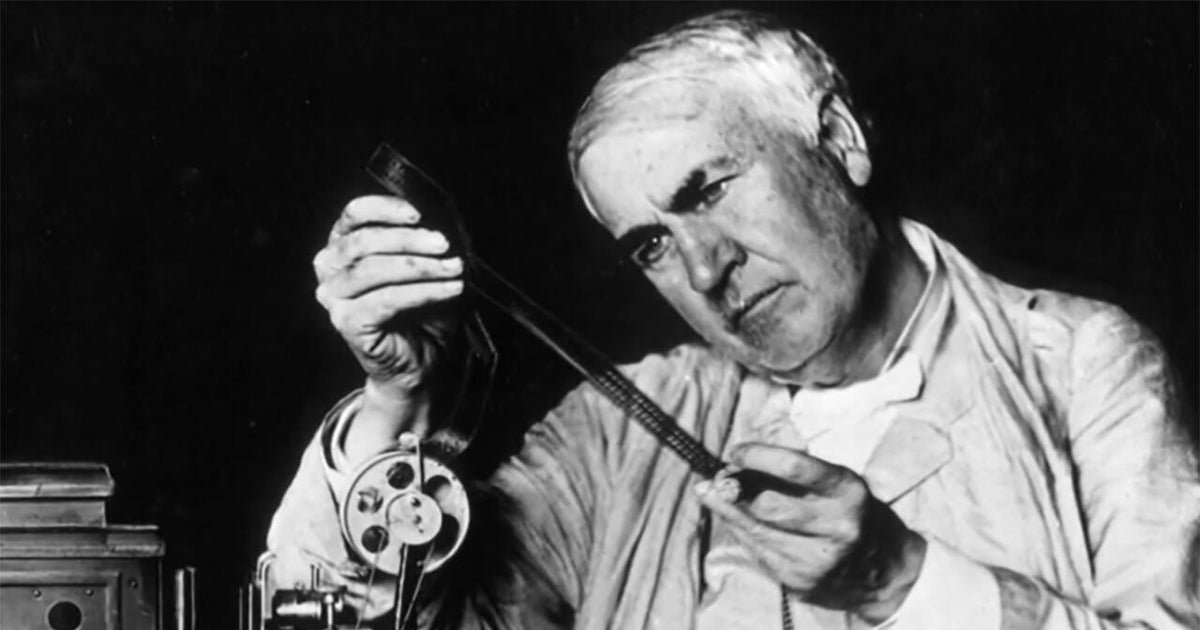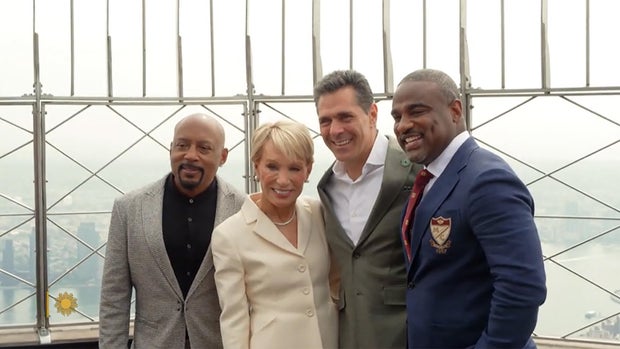Celebrating America's spirit of innovation

If you plot the origins of the greatest inventions in history, you start to notice a pattern: The light bulb, the phonograph, the airplane, air conditioning, the zipper, the microwave, lasers, transistors, the personal computer, the internet, GPS, the smartphone … No country on Earth has as rich a history of modern invention as this one.
But my question is, why is that? Well, the answer may start with a guy from Ohio: Thomas Edison, who we know as the inventor of the light bulb.
"Kind of," notes Hal Wallace, a curator at the Smithsonian's National Museum of American History. "What we like to say is, Thomas Edison invented a commercially practical light bulb."
Wallace says the light bulb was just one component of Edison's achievement: "He was inventing new dynamoes, cables, switches, sockets, meters. If you're gonna sell electricity, you gotta have a meter. So, it's a systems approach."
On New Year's Eve 1879, Edison gave an unforgettable demo in Menlo Park, New Jersey. Wallace said, "He lit up the grounds, he lit up the laboratory, he lit up an office building with about a hundred of these light bulbs, and invited the press: 'Come out to Menlo Park and see what we've done.' He especially invited his investors!
"When the lights come on, it's almost a mystical experience, because these are not candles, they're not gas lights, they don't hiss, they don't smoke, they don't create noxious odors. You turn it on, it just sits and it glows."
Edison's portfolio also included motion pictures, Portland cement, and even a talking doll, "which is one of his famous flops," said Wallace.
Steven Johnson, who has written 14 books about innovation and also co-founded a new Google AI tool for research called NotebookLM, says there are two archetypes many people use that are almost always wrong: "They are the kind of lone genius coming up with a brilliant idea, and having that idea in a moment of sudden inspiration," he said. "That is almost never the case.
"Edison gave a lot of credit to the crew," Johnson said. "He has a famous line where he's like, 'I'm not so much a generator of ideas as I am a sponge.'"
Edison called Menlo Park "the invention factory." He employed engineers, chemists, glassblowers, and mathematicians. Johnson said, "He came up with this idea that if you got these interesting people together and put them in the same room together, that you could create a kind of a factory for new ideas. And that's what Menlo Park became."
The pioneering spiritToday, Americans come up with more inventions than ever. Over the years, hundreds of entrepreneurs have appeared on ABC's "Shark Tank," where they pitch a panel of potential investors, including real estate mogul Barbara Corcoran, Kind Bar founder Daniel Lubetzky, fashion pioneer Daymond John, and venture capitalist Rashaun Williams.
"They think their idea is always terrific," said Corcoran. "It very often isn't. Anybody could come up with an idea, and everybody has at least a dozen. Really, everybody's got an idea, But building a business? Not many people can do it."
She says most people coming into "Shark Tank" appreciate that the hard part is still ahead. But Lubetzky responded, "It's not necessarily bad that entrepreneurs don't know how hard it will be."
"I would've never done what I've done, never," said John.

Asked what it is about America that fosters such ingenuity, John replied, "I think the people that founded the country went against all odds to come here. So, we got the cream of the crop of the world."
Lubetzky added, "You see also the pioneering spirit of all the immigrants and all the people that tried things out, and bring that spirit of risk-taking."
"And they bring that spirit on," said John. "And then you have the top people around the world who left for either famine, atrocities, whatever, they made it over here, and they had a goal to make it over here. So they, first if all, are 1% of where they're from."
Williams said, "I think we have to give this government a lot of credit, too. A lot of the original venture capital funds were funded by government entities."
Lubetzky said America's financial ecosystem "allows ideas to be financed. Venture capital is much, much less developed in most other countries."
And, Williams said, "We also glamorize the successful entrepreneur in this country, just like we glamorize the professional athlete or entertainer. If you start a company and you sell it for $1 billion and you scale it, you're on the cover of every magazine. You're a superstar in this country."
And, as for failure, Lubetzky said, "In most of the world, if you fail, it's a negative mark on your family. And you are, you know -- it's horrible. You're an outcast. In the United States, you shrug it off and you try again."
Corcoran said, "The real question is, what do the successful entrepreneurs have in common? And I say what they have in common is the ability to get back up, take rejection."
"A pretty powerful combination"According to Google's Steven Johnson, history is periodically upended by huge, foundational, technological breakthroughs.
"Edison realized that for the light bulb to work, he had to build an electrical grid," he said. "But it was the grid that really changed everything, because once you had power to your homes, yeah, you could turn on a light, but you could also build a dishwasher, and you could have a television, and you could have a radio."
The personal computer launched another huge round of innovation, and then the internet, and now artificial intelligence. All of it … invented in America.
Johnson said, "Openness to new ideas, willingness for consumers to experiment, that mix of a capitalist model with venture capital, [plus] government support and academic support, you put all those things together, and it's a pretty powerful combination."
For more Info:
Story produced by David Rothman. Editor: George Pozderec.
Cbs News





